| Weight | 1 lbs |
|---|---|
| Dimensions | 9 × 5 × 2 in |
| host | mouse |
| isotype | IgG1 |
| clonality | monoclonal |
| concentration | 1 mg/mL |
| applications | ICC/IF, WB |
| reactivity | SMRT |
| available sizes | 100 µg |
mouse anti-Smrt monoclonal antibody (H7) 7889
$503.00
Antibody summary
- Mouse monoclonal to Smrt
- Suitable for: WB,ICC/IF,IP
- Isotype: IgG1
- 100 µg
mouse anti-Smrt monoclonal antibody (H7) 7889
| antibody |
|---|
| Tested applications WB,ICC/IF,IP |
| Recommended dilutions Immunoblotting and Immunoprecipitation: use at 1-5 ug/mL. Positive control: HBL100 |
| Immunogen A KLH-conjugated synthetic peptide derived from human SMRT corresponding to aa 994-1005 |
| Size and concentration 100µg and lot specific |
| Form liquid |
| Storage Instructions This antibody is stable for at least one (1) year at -20°C. Avoid multiple freeze- thaw cycles. |
| Storage buffer 10 mM PBS, pH 7.4. |
| Purity immunogen affinity purification |
| Clonality monoclonal |
| Isotype IgG1 |
| Compatible secondaries goat anti-mouse IgG, H&L chain specific, peroxidase conjugated polyclonal antibody 5486 goat anti-mouse IgG, H&L chain specific, biotin conjugated, Conjugate polyclonal antibody 2685 goat anti-mouse IgG, H&L chain specific, FITC conjugated polyclonal antibody 7854 goat anti-mouse IgG, H&L chain specific, peroxidase conjugated polyclonal antibody, crossabsorbed 1706 goat anti-mouse IgG, H&L chain specific, biotin conjugated polyclonal antibody, crossabsorbed 1716 goat anti-mouse IgG, H&L chain specific, FITC conjugated polyclonal antibody, crossabsorbed 1721 |
| Isotype control Mouse monocolonal IgG1 - Isotype Control |
| target relevance |
|---|
| Protein names Nuclear receptor corepressor 2 (N-CoR2) (CTG repeat protein 26) (SMAP270) (Silencing mediator of retinoic acid and thyroid hormone receptor) (SMRT) (T3 receptor-associating factor) (TRAC) (Thyroid-, retinoic-acid-receptor-associated corepressor) |
| Gene names NCOR2,NCOR2 CTG26 |
| Protein family N-CoR nuclear receptor corepressors family |
| Mass 273657Da |
| Function FUNCTION: Transcriptional corepressor that mediates the transcriptional repression activity of some nuclear receptors by promoting chromatin condensation, thus preventing access of the basal transcription (PubMed:10077563, PubMed:10097068, PubMed:18212045, PubMed:20812024, PubMed:22230954, PubMed:23911289). Acts by recruiting chromatin modifiers, such as histone deacetylases HDAC1, HDAC2 and HDAC3 (PubMed:22230954). Required to activate the histone deacetylase activity of HDAC3 (PubMed:22230954). Involved in the regulation BCL6-dependent of the germinal center (GC) reactions, mainly through the control of the GC B-cells proliferation and survival (PubMed:18212045, PubMed:23911289). Recruited by ZBTB7A to the androgen response elements/ARE on target genes, negatively regulates androgen receptor signaling and androgen-induced cell proliferation (PubMed:20812024). {ECO:0000269|PubMed:10077563, ECO:0000269|PubMed:10097068, ECO:0000269|PubMed:18212045, ECO:0000269|PubMed:20812024, ECO:0000269|PubMed:22230954, ECO:0000269|PubMed:23911289}.; FUNCTION: [Isoform 1]: Isoform 1 and isoform 4 have different affinities for different nuclear receptors. {ECO:0000269|PubMed:15632172}.; FUNCTION: [Isoform 4]: Isoform 1 and isoform 4 have different affinities for different nuclear receptors. {ECO:0000269|PubMed:15632172}. |
| Subellular location SUBCELLULAR LOCATION: Nucleus {ECO:0000269|PubMed:10097068}. |
| Tissues TISSUE SPECIFICITY: Ubiquitous (PubMed:10077563). High levels of expression are detected in lung, spleen and brain (PubMed:10077563). {ECO:0000269|PubMed:10077563}. |
| Structure SUBUNIT: Forms a large corepressor complex that contains SIN3A/B and histone deacetylases HDAC1 and HDAC2. This complex associates with the thyroid (TR) and the retinoid acid receptors (RAR) in the absence of ligand, and may stabilize their interaction with TFIIB. Interacts directly with RARA in the absence of ligand; the interaction represses RARA activity. Interacts (isoform SMRT) with HDAC10. Interacts with MINT. Component of the N-Cor repressor complex, at least composed of NCOR1, NCOR2, HDAC3, TBL1X, TBL1R, CORO2A and GPS2 (PubMed:10809664, PubMed:10944117, PubMed:11931768, PubMed:19858209, PubMed:21240272). Interacts with CBFA2T3 and ATXN1L. Interacts with RARB; the interaction is weak and does not repress RARB transactivational activity. Interacts (via 1D-myo-inositol 1,4,5,6-tetrakisphosphate) with HDAC3; promoting the histone deacetylase activity of HDAC3 (PubMed:22230954). Interacts with HDAC7 and C1D. Interacts with NR4A2; this interaction increases in the absence of PITX3. Interacts with BCL6 (via the BTB domain), required for BCL6 transcriptional repressor activity on a subset of target genes. Forms ternary complexes with BCOR and BCL6 on target gene promoters but, on enhancer elements, interacts with BCL6 and HDAC3 to repress proximal gene expression. May interact with DEAF1. Interacts with RXRA. Interacts with MECP2 (By similarity). Interacts with ZBTB7A (PubMed:20812024). Interacts with AR (PubMed:20812024). Interacts with TBL1Y (PubMed:30341416). Interacts with SANBR (via the BTB domain) (By similarity). {ECO:0000250|UniProtKB:Q9WU42, ECO:0000269|PubMed:10809664, ECO:0000269|PubMed:10944117, ECO:0000269|PubMed:11331609, ECO:0000269|PubMed:11533236, ECO:0000269|PubMed:11739383, ECO:0000269|PubMed:11931768, ECO:0000269|PubMed:12554770, ECO:0000269|PubMed:14690607, ECO:0000269|PubMed:15454082, ECO:0000269|PubMed:16121196, ECO:0000269|PubMed:18212045, ECO:0000269|PubMed:19786558, ECO:0000269|PubMed:19858209, ECO:0000269|PubMed:20543827, ECO:0000269|PubMed:20812024, ECO:0000269|PubMed:21240272, ECO:0000269|PubMed:22230954, ECO:0000269|PubMed:23372760, ECO:0000269|PubMed:23911289, ECO:0000269|PubMed:30341416}. |
| Domain DOMAIN: The N-terminal region contains repression functions that are divided into three independent repression domains (RD1, RD2 and RD3). The C-terminal region contains the nuclear receptor-interacting domains that are divided in two separate interaction domains (ID1 and ID2). {ECO:0000269|PubMed:21240272}.; DOMAIN: The two interaction domains (ID) contain a conserved sequence referred to as the CORNR box. This motif is required and sufficient to permit binding to unligated TR and RARS. Sequences flanking the CORNR box determine nuclear hormone receptor specificity. {ECO:0000250|UniProtKB:Q60974}.; DOMAIN: The deacetylase activation domain (DAD) promotes the recruitment and activation of HDAC3 (PubMed:22230954). Inositol tetraphosphate (1D-myo-inositol 1,4,5,6-tetrakisphosphate) acts as an intermolecular glue between HDAC3 and NCOR2 (PubMed:22230954). {ECO:0000269|PubMed:22230954}. |
| Target Relevance information above includes information from UniProt accession: Q9Y618 |
| The UniProt Consortium |
Data
Publications
| pmid | title | authors | citation |
|---|---|---|---|
| We haven't added any publications to our database yet. | |||
Protocols
| relevant to this product |
|---|
| Western blot IHC ICC |
Documents
| # | SDS | Certificate | |
|---|---|---|---|
| Please enter your product and batch number here to retrieve product datasheet, SDS, and QC information. | |||
Only logged in customers who have purchased this product may leave a review.
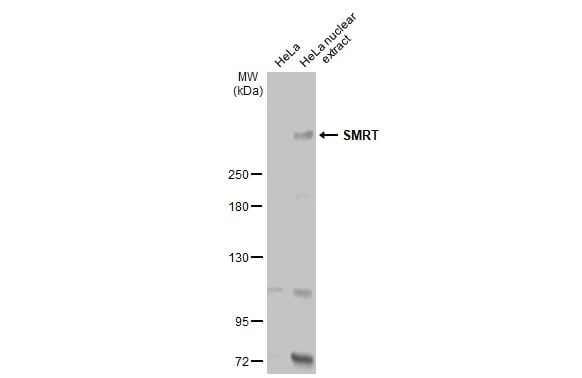
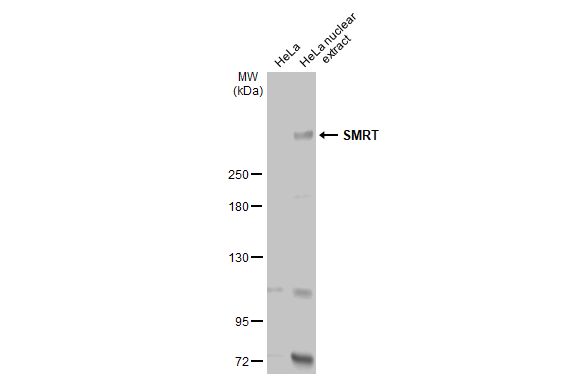
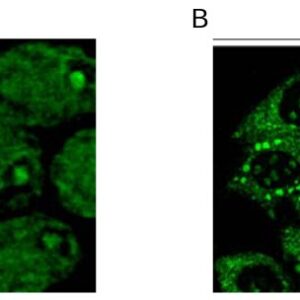
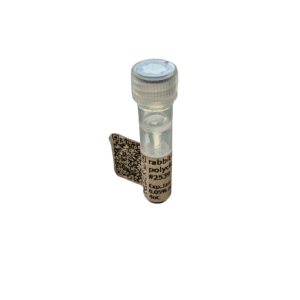
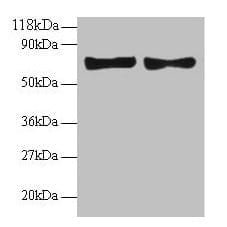
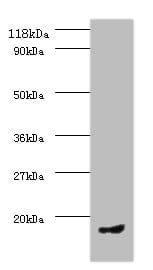

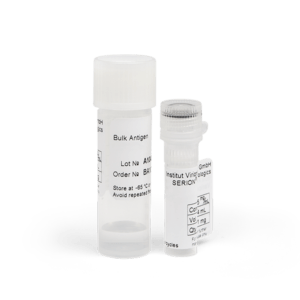
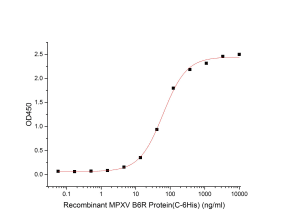
Reviews
There are no reviews yet.